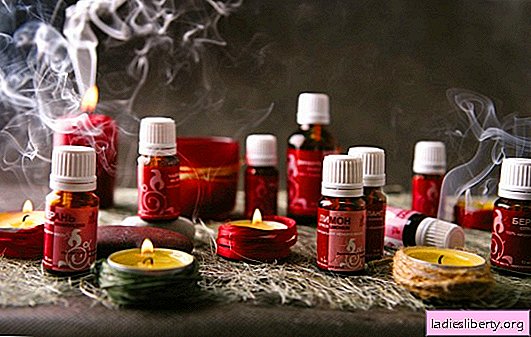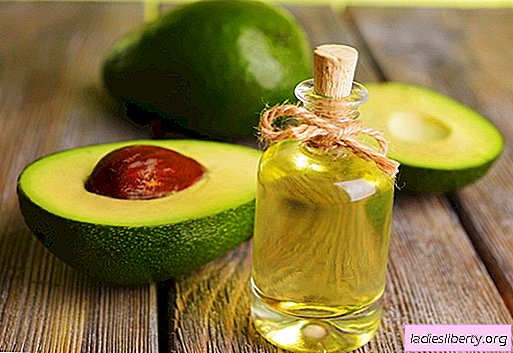
Essential oils are a generous gift from nature that can be used with benefits for health and beauty. However, ignorance of simple rules and precautions can have the opposite and unexpected effect.
How to behave in order to get the maximum benefit from aromatherapy and avoid negative consequences?
Rule number 1. Choose only quality essential oils
Today, the market is literally flooded with a huge amount of essential oils from different manufacturers. Natural miracle jars can be bought at supermarkets, cosmetics stores, pharmacies, and markets. However, this is not worth doing. You can only offer a high-quality product in a specialized aromatherapy product store that works with major suppliers.
In laboratories and aromatherapy centers, raw materials undergo rigorous quality control, and the finished essential oil undergoes chromatographic analysis. Of course, such a product cannot be cheap and sold on the shelves next to consumer goods.
Rule number 2. Before using a new essential oil, test the tolerance of the components
Intolerance to a particular essential oil can result in sad consequences, no matter how pleasant its aroma is. The test consists of two parts.
First part. Apply 1 drop of oil to the back of your hand. At first, you may feel a slight burning sensation - this is a normal reaction. If after a few hours your inflammation center "flaunts" on your hand and you feel unpleasant sensations (pain, itching), then give up the use of essential oil. If these negative symptoms do not occur, continue to the next part of the test.
The second part of. Add 1 drop of essential oil to a handkerchief. Breathe in its aroma periodically throughout the day. If lacrimation, sneezing, shortness of breath or sore throat begin to bother you, then you have to make a conclusion about the intolerance of the essential oil.
Rule number 3. Inadmissibility of a sharp transition
Suppose you have established that you are transporting a specific essential oil. But even in this case, you should not try to grasp the immensity by applying large doses of a new substance. A small amount of essential oil is enough for it to begin to affect the body. One or two drops will be enough. And then, if all goes well, you can gradually increase the dosage.
If you are aromatizing a room for the first time, then it should last no more than 20-30 minutes.
Rule number 4. Observe the dosage of oil specified in the instructions
Exceeding the dosages of essential oils can lead to intoxication of the body and cause unpleasant symptoms such as headache, muscle weakness, nausea, vomiting, allergic reactions, difficulty breathing.
It is also important to understand that the instructions show only approximate figures. The dosage of oil for a particular person should be determined gradually, taking into account the recommended range. As a rule, children, people with chronic diseases, and older people are more susceptible to essential oils. Accordingly, for them, the recommended dose can be reduced.
Rule number 5. Do not use essential oils in their pure form
The only exceptions are lavender and tea tree oils, which can be applied using the spot method on problem areas of the skin. Other oils have a very strong concentration of active ingredients, so when used in pure form they can cause at least skin irritation and burns.
Essential oils can be distributed on the skin during aromatic massage (3-5 drops of essential oil per 30 ml of base oil) or by pre-enrichment of neutral cosmetics.
Before taking a bath, essential oils should be dissolved in an emulsifier, which can be used sea or regular salt, honey, sugar, cream, liquid soap.
Rule No. 6. Use caution with citrus essential oils.
In no case should you use citrus essential oils before going out in the sun. This can cause sunburn and cause age spots.
Rule number 7. Trust your inner feelings
Each essential oil affects not only the skin and internal organs, but also on the psycho-emotional state. Breathe in the scent. If you did not like it, then refuse the use of essential oil. No matter how wonderful properties it possesses, the positive effect of an unpleasant aroma is unlikely to come.
Rule number 8. Carefully study the properties of your chosen essential oil
As a rule, essential oil has a wide spectrum of action. But its individual properties may have features for each individual person. So, there are quite a few essential oils that improve mood. But some of them do this by increasing the tone of the body, while others, on the contrary, by relaxing. So, if you suffer from insomnia at night due to bad thoughts, you better use lavender essential oil, it is soothing. If you spray orange oil in the air, then bad thoughts are likely to go away, but you still can’t fall asleep, because the orange invigorates.
Rule No. 9. Store essential oils in suitable conditions.
The following factors are detrimental to essential oils: sunlight, too high and low temperatures, high humidity. Therefore, these substances should be stored in a dark, dry place at room temperature (essential oils - in the refrigerator, since they are rapidly oxidized at high temperatures).
Essential oils have their own shelf life, usually it is 2-3 years, but there are exceptions.
Rule number 10. Do not use essential oils without consulting a specialist during pregnancy or in the presence of chronic diseases
So, basil essential oil is contraindicated during pregnancy, with hypotension citrus oils are not recommended for use, and people suffering from epilepsy should generally refrain from using many oils. In such cases, consult an aromatherapist.











